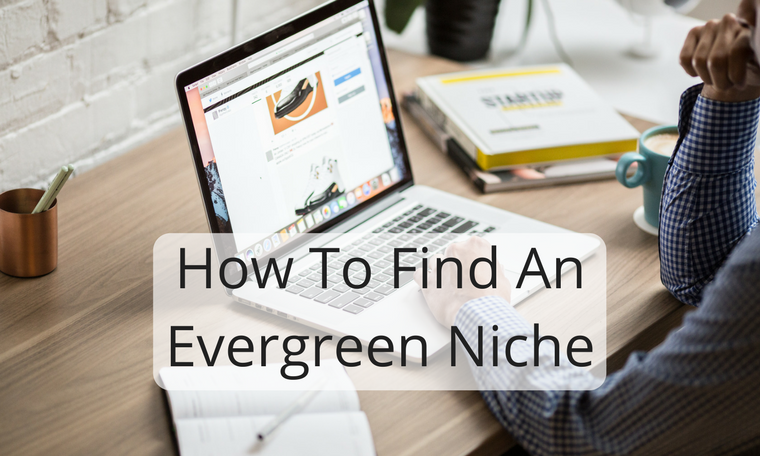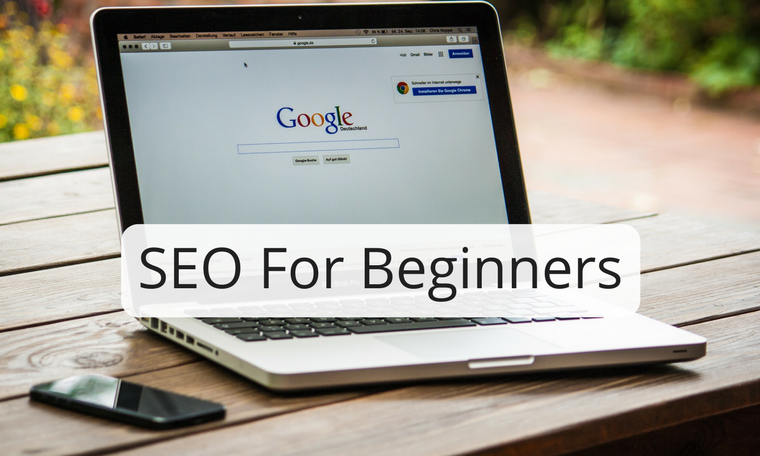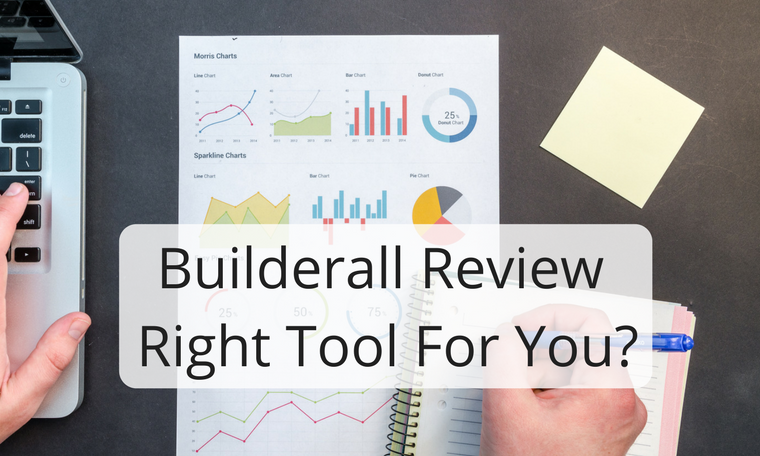How about a Free Funnel?
Enter your information below to get access to a free high-converting funnel!

In this article, I will show you some of the most popular niches that always sells and are always popular.
These are massive niches where you can find plenty of sub-niches. If you drill down far enough, you’re going to find a sub-niche not many people are talking about and offering solutions to.
This is what you came here to find. I’m going to try my best and point you in the right direction so you can start thinking about the niche you ‘d eventually like to build your business on!
This is one of the biggest niches where successful entrepreneurs make millions and even billions of dollars annually. And I’m not even talking about those huge pharmaceutical companies– I’m talking about the small and medium-sized entrepreneurs and startups.
If you ‘d like a share of this money-making pie, then dive into this niche!
Here are some of the sub-niches you can focus on:
– Fitness and weight loss/gain— there will always be people interested in getting fit and losing or gaining weight. I am pretty sure that everyone, at one point in our lives, has researched about ways to lose weight or build muscles– that includes you and me!
– Diet and nutrition— another extremely popular sub-niche. With so many people
wanting to know the easiest way to lose weight, different diet programs will continue to crop up for years to come!
– Cures for diseases— there are so many ailments that befall the human body. If you know of a solution to a specific condition that not too many people are discussing, then you may want to develop a product based on that!
– Exercise— there are plenty of exercise routines and exercise equipment that are available to the public right now. If you like this niche, you can create exercise videos and grow your business around it.
You can upload your videos to YouTube and monetize it there, or you can create a membership program on your website and give members exclusive access to your videos.
Feel free to explore and go even deeper into the health sub-niches. Think outside the box. The more specific the health problems you can address, the less competition you’ll have, and the easier your road to success will be.
Everyone wants to learn how to make money. Without money, we can’t live the life we want to live. We can’t reach for our dreams. We’ll be forever tied to low paying jobs and caught in the never-ending rat race. Wealth gives us the freedom to do the things we love with the people we want to share the moment with.
Just like the health niche, there are plenty of sub-niches you can tackle in the wealth niche. Here’s a few of them:
– How to make money online— in this niche, you’ll find plenty of competition. There are countless ways to make money online– you can build a blog, create info products, work as a freelancer, teach English as a second language to overseas students, sell merchandise online, dropship, and so much more. If you know of a proven way to make money online, don’t be afraid to share your knowledge with the world.
– How to make money offline— not everyone’s into making money online. Some people are still into traditional ways of making money offline. If you’ve got ideas on how you can help people earn some extra dough without using the Internet, share it! It just may be your next passive income stream.
– Personal Finance— being financially fit is an important topic that people from all walks of life can benefit from. We all need money. And knowing how to save and spend money wisely is a topic that will remain relevant for as long as we use money in our daily lives.
– Investments— there’s a lot of risks involved with any kind of investment, but there will always be people interested in knowing the different techniques in trading and investing in various commodities. If you’ve got specialized knowledge or experience in these areas, you may want to consider building your evergreen product in this niche!
Another very popular evergreen niche is the personal development niche. This is a vast niche simply because there are so many areas we want to improve ourselves on.
We are constantly looking for ways to improve our attitude, our appearance, our organizational skills, our personal and professional relationships, self-discipline, and so much more.
You want to build yourself and your skills for the long haul– that’s why it’s called development. You’re making a conscious effort to develop yourself so you can reach your long-term goals.
If you ‘d like to build your business in this niche, here are some good sub-niches you may want to consider:
– Leadership skills— people respect and look up to leaders whether it be in a professional setting, a religious setting, political, etc. Leaders often make good decisions and are in the position to solve problems, both big and small. If you think you can teach other people how to become a great leader, then this might be the perfect niche for you.
– Communication skills – having excellent communication skills can open many doors for you. This includes knowing how to listen and how to speak in public. You can teach people how to get ahead of their competition by simply working on their communication skills.
– Confidence— everyone needs confidence. Shy and meek people may not get very far in life because they’re too shy to jump on an opportunity. When you’re confident, it’s easier for you to succeed because you believe in yourself– you can easily overcome your fears and your doubts.
When you exude confidence, you appear more trustworthy, and people feel they can trust whatever it is you’re saying.
– Job interview skills— in order to land your dream job, you need to have excellent job interview skills to stand out from the competition. You need to have the confidence and the communication skills to snag that job.
If you think you have what it takes to teach people how to ace job interviews, then this might be the right niche for you.
Finding the right evergreen niche to build your business on will take time.
You have to invest in the right tools, and you need to have the patience to uncover those special niches which will generate everlasting profits for you.

Building a business is hard. Finding an evergreen niche you want to build your business on is even harder. Sure, you can just go and pick a random niche anytime you like, but would you be able to devote or spend the time necessary to grow your business?
If you answered no, then you might have chosen the wrong niche. If you answered yes, then you might have a gem on your hands. Finding success in an evergreen niche can mean a passive income stream for you for many years to come.
There are literally thousands upon thousands of niches and sub-niches you can choose for your business. Some may be seasonal, while some fad niches may last only a few weeks or a few months– these aren’t the niches you’re looking for.
Evergreen niches are those that don’t depend on the time of year, or even the year itself. Popular evergreen products continue to sell years, or even decades after it was first sold. If you find the right evergreen niche and target the right audience with the right product, you could be making a lot of money.
When looking for the perfect evergreen niche for your business, you basically have two options: Profit or Passion. Different people will give you different answers, so you ‘d have to really look inside yourself to find the right answer. There’s no right or wrong answer, mind you, but to help you weigh your options, here are the pros and cons of each.
Most beginners actually choose this option. Why? Because they are already passionate about a particular topic, and they are confident they can write long-form articles or content around the subject.
If you have a favorite hobby or something that really perks you up every time you come across that subject, then you might want to look deeper and see if you can create a business off of that. You know what they say, right? Do what you love, and you’ll never work another day in your life.
You can write a 5,000-word article on the subject every week and publish it on your site, that’s how passionate you are about the topic. Or if you’re into publishing info products, then having the commitment and the passion to producing quality content regularly will contribute greatly to your success.
Having the passion for your subject is obviously important. Otherwise, your interest is going to fizzle out after a few weeks when you realize just how hard it is to build a business from scratch!
But your passion will see you through, and carry you through the rough days. Because yes, there will be rough days. It’s just a fact of life that not even passion niches can escape from.
Now, one of the downsides to choosing a niche based on passion is that after a while– no matter how much you love the subject– you may eventually start to resent the work. During the course of your research, or after you’ve written a hundred thousand words on the topic, you’ll feel burnt out.
If you have the money, however, the option to outsource the grunt work is always there. But generally speaking, beginners who choose to go this route don’t usually have the budget.
Another downside to option 1, depending on the hobby or interest you’re building an evergreen product for, is that there may not be a whole lot of people interested in the subject.
While you could potentially make sales year-round, the volume may not be up to par as compared to choosing a niche for profit. If you ‘d like to cut to the chase and build a business on a profitable niche, then read the next section for ideas.
The second option will take a lot more work than the. You ‘d have to do plenty of research to identify a potentially profitable niche. You ‘d have to study trends, do plenty of keyword research, and generally have your ear to the ground to find out what’s popular and making sales.
You have to pay attention to the news and look for something that will grab your attention and make you go, “I can sell that!”
When choosing a niche for profit, you might think it’s going to be hard creating content for something you may not know anything about. You can, of course, do plenty of research– you can do desktop research by going on
Google, or if you want first-hand information, you can even interview industry experts!
Doing this may take you plenty of time. If you want to avoid the long wait, you may want to consider hiring an expert in the subject area. Or hire a freelancer who can do the research and the write-up for you. Of course, choosing the right freelancer will also take time.
They’re also not going to come cheap, so you ‘d need to consider this as well. If money’s not an issue, then going for option 2 is a very smart business decision.
Choosing a niche for profit takes a lot of uncertainty out of the equation. Unlike choosing a passion niche which may or may not translate to a nice volume of sales, choosing a profitable niche is designed to help you make the most amount of profit.
With luck, you may even find a profitable niche that you’re interested in– this is the best of both worlds! For best results, a profitable evergreen niche you’re passionate about is something you should strive to look for.
Remember, at the end of the day, you’re creating a business to make money. It makes sense to choose a niche you know is going to be more profitable than a niche you may love but is not going to be as profitable.

As a local business owner, you realize the opportunities available on the Web, but you probably do not have the time or money to invest in a full-blown web presence. The obstacles and costs in building a website keep many local businesses on the sideline.
You may think email marketing is complicated, but that is a misconception. If you are communicating with your customers through email, in a sense you are already marketing online. You are probably aware that a small amount of customer communication can be very profitable, and email can generate considerable income.
All you need to do is start collecting customer emails and send them occasional promotions or sale updates. The email advertisements do not need to be coded in HTML, plain text messages are quite acceptable.
You begin by simply collecting customer email addresses, with their permission. Permission email marketing is a requirement. At all stages of email marketing, you MUST respect your customers and their privacy.
As a local business owner, you are constantly in touch with customers and prospects, either in person or on the phone. As a retail business, you could have a clipboard by your register or pre-printed index cards that your customers can fill-out.
The opportunity to save money or be notified of special offers. People are always looking for a bargain, and through email, you can keep them informed on the latest deals, in addition, you can alert them to new services or products.
If you email friends or family, you are quite capable of marketing through email. Your list will be small so you can manage it through the use of your current email client like Microsoft Outlook. You place your customer emails in a “group,” compose a message and hit the send button.
From the start, you may want to consider using a professional email management service like GetResponse. A service like GetResponse simplifies the management of your list. These types of services offer features like tracking, reporting, templates and customer support.
Think about the potential profit from simply keeping your customers informed. This is not invasive advertising, but permission marketing, where your customers have willingly given their consent to receive your advertisements. It is like they are saying, “Please allow me to spend more money with your business.”.
If you already have a website then you will also want to add an opt-in box. Give your site visitors an opportunity to join your promotional list. Many will.
From a marketing perspective, it doesn’t get any more targeted than this. She makes a killing and often sells out her promotional inventory through email alone.
It’s simple, direct and very profitable. And yet few local businesses are taking advantage of email marketing.
Does your business already use email marketing? If you want to know how to start with email marketing I can recommend you this article. My favorite autoresponders are GetResponse and Actionetics from ClickFunnels. ClickFunnels is also very great if you also need a landing page.

Have you heard of Russel Brunson’s book called DotCom Secrets? He calls it the underground playbook for growing your company online. Here you can get a free copy.
I think that if you want to build a successful online business, DomCom Secrets is one of the books you must read. At first, let’s have a look at the author.
Russell Brunson is one of the leading experts in the field of online marketing. Over the past 10 years, Russell was able to build a following of over a million entrepreneurs, sold hundreds of thousands of copies of his books and co-founded a software named ClickFunnels (see here my review) that helped tens of thousands of entrepreneurs quickly their message out of the marketplace.
As you can see, Russell really knows what he is talking about so let’s have a look at his bestselling book DotCom Secrets.
The book has 236 pages and is filled with a lot of information and value. I read the book in one day because the content was very exciting. I learned more in this book than the first 6 months working as an online entrepreneur.
As I said, I can really recommend this book so let’s look at the content more in detail. The book has four different sections.
In this section you’ll learn the concept of a ladder and why some companies are able to spend much more on advertising than their opponent. Russell also explains the concept of sales funnels and how you can apply them to your business.
In the second chapter, you’ll learn the concept of the attractive character and how you should communicate with your audience.
After applying the concept of the “Soap Opera Sequence” I was able to boost the conversion of my email marketing campaigns and earn more money with each lead.
If you want to build a successful funnel you need to know which variables are important and you need spend attention to. In the third chapter, you’ll learn the techniques of building a successful funnel and how to structure it for the maximum income.
You’ll learn how to determine the temperature of your visitors and how to turn cold into warm traffic and how to turn warm traffic into hot traffic.
In this section, you’ll get access to different funnels and scripts you can apply to your business. Here Russell explains the different funnels and for what type of business they are for.
That makes it very easy for you to find the fitting funnel for your business and apply it. I don’t think there is any business that couldn’t use the information given in this section.
DotCom Secrets is for
After reading this book my whole world changed. I know that sounds very dramatic but it really did. After reading this book I saw that my problem was not the traffic but the conversion.
If you want your business to survive long term you need to make sure you are able to spend more on advertising than your opponents. If you want to know how to do that you should read the book!
I recommend this book to everyone who wants to grow their business or thinks about using online marketing for their business. Here you can get your free copy!
Have you already read the book? What do you think about it? Was your mind blown like mine? 😀 Let me know by leaving a comment below!

SEO is ‘Search Engine Optimization’ and this basically means that you’re trying to get your website to show up in search results. Of course, you’re not going to be able to show up high in every search result and so this is where keywords and targeting come in.
A keyword is essentially a word or a phrase that people are going to search in order to find your site. When people go shopping online, they will almost always start with Google. And when they start with Google, they will begin by searching for the thing they want. Very often, this will mean that they search for something like ‘Buy Hats Online’.
If you can target that precise phrase so that your page is the top result, then you will not only be able to reach the right demographic– but you’ll be able to target them at the precise moment that they’re actually planning on buying something!
The same thing happens when someone looks for information– they might search for ‘How to Lose Weight After Christmas’ or they might search for ‘Fitness Articles’.
Again, you can bring more people to your site and that way hopefully create more loyal followers, simply by making sure that your pages come up as top results for those terms.
SEO has the huge advantage of being highly targeted and allowing you to reach anyone rather than just people who are your followers or who are part of the same network as your followers.
The only problem is that SEO is also arguably more complicated than the other forms of marketing we’ve looked at so far. That and it is never guaranteed. That is to say that you can spend years doing SEO or pay the very biggest SEO service in the world and still not see any improvements.
Let’s take a look at why that is and how to give yourself the best chance of success …
In order to get to the top of Google, the aim is to try and understand how Google works, how Google decides which sites are worthwhile and then how you can manipulate those factors in order to move your site to the top.
Google works using ‘spiders’ or ‘robots’. These are small programs that search the web by following from one link to the next. Each time they find a new website, they then add that website to a giant index and will assess the subject matter and the quality of that site by looking at who is linking to the page, how the page is laid out and what the subject of the content appears to be.
If we knew precisely how Google’s algorithm worked, then we could get to the top of the search results with guaranteed certainty. As we don’t know this though, all we can do is make educated guesses and hope that those get us to the top of Google.
When Google first became the dominant search engine, the algorithm was fairly straightforward and was generally quite well understood by marketers. Back then, we knew that:
Back then, it was easy enough to manipulate Google into doing your bidding. All you had to do was to create a website with lots and lots of content, repeat the same keywords over and over again and get lots of other sites to link to you.
It was literally a matter of whoever worked the fastest could get to the top of Google the quickest.
Though, this also led to some very bad practices. People would ‘stuff’ keywords into their text, repeating the same few phrases over and over again. People would pay for links. People would steal content and ‘spin it’ (swap words for synonyms) and generally, Google’s results started to become dominated by spam.
Google clamped down and introduced some smarter rules and algorithms. These updates to its system were known as ‘Penguin’ and ‘Panda’ and they really shook up the internet marketing community.
The new Google is much smarter when it comes to looking for content and now values quality over quantity to a large degree.
A few examples of the changes:
This sudden change resulted in a lot of sites being removed from Google altogether, which badly hurt many businesses. As you can imagine, this caused quite a lot of outcry!
What’s important to remember is that website owners are not the customers that Google is catering to. Google is catering to users who want to use Google in order to find high-quality content.
Thus, Google’s main and only objective is to ensure that the content it shares is relevant and interesting to the people searching for it.
What is the best way to handle good SEO? Simple: make sure that you are providing great, relevant content. When you do this, you are aligning yourself with Google’ goals. Every change that Google makes will ultimately help more people to find your site.
The sites that try to ‘spam’ Google or trick it, will only be damaged each time that Google has an update.
With all that said, how do you go about carrying out SEO for your site in this day and age?
The first thing to do is to fill your site with as much relevant content as possible. Notice how SEO and content marketing naturally go hand in hand already?
Ideally, this content should be long-form (at least occasionally) and should contain links to other sites. Again, the same things that make your content high quality for your readers are the things that Google wants to see.
Do some keyword research to find what it is that people are searching for and what you should try to target to get the ideal traffic to your site. You can find the volume of people searching for specific terms by using the free keyword tool Jaaxy (Check out here my review).
Try to make sure that the terms you search for aren’t too competitive, however, as otherwise, you can end up going against too many other sites and giving yourself an impossible task.
As mentioned though, Google doesn’t just like you to keep repeating the same keyphrase over and over.
Instead, the objective is to lace it into the content a few times as naturally as possible while also including synonyms and related terminology. This should happen naturally and it should never distract the reader.
From here, you can then go about building links from high quality, relevant sites. There are certain sites that Google already trusts and you can spot these by looking at which ones are already at the top of Google and which ones are featured in Google News. Google also likes big, recognized brands and it likes.edu and.org domains.
While it might be hard to get links from those sites, you can think of this a bit like ‘degrees of separation’.
In other words, if you can’t get a link from Harvard, look for a site that does have a link from Harvard and see if you can get a link from them!
One of the best strategies you can use to build links is something called ‘Guest Posting’. Here, you are essentially going to contact big blogs and offer to write content for them for free.
This content needs to be relevant and high quality so that they are tempted to go ahead and publish it. Rather than charging for your writing, you then make the deal that you will get to link back to your website, within the body of the text.
One way to avoid going head-to-head with the biggest players in your niche is to focus on local SEO. Local SEO is simply SEO that places local keywords front and. If you live in Santa Monica and you run a hairdresser, then you would try to rank for ‘Santa Monica Hairdresser’ and you would build links from other local companies.
It’s much easier to become number one for a specific search term like this and even if you are running an international business it can be a good idea to start local and then branch out once you have built local momentum.
Avoid anything that looks spammy or manipulative. Try to avoid patterns and encourage your visitors to share your links online. That’s what Google really wants to see: sites with lots of links on the strength of their quality.
One way to do this is to write link bait. This is content that is so useful, so interesting or so shocking, that other people want to link to it and include it in their debates or share it with friends.
When creating your links, avoid trying to use only your keywords in the anchor text. Sometimes the best anchor is just ‘Click Here’ or ‘This Article’. Again, this looks more organic and natural and this means Google won’t think you’re paying for your links.
Don’t try and trick Google. Just create high-quality content for your readers, while keeping Google’s algorithms in the back of your mind.

Builderall wants to be the only tool you need to use when it comes to online marketing. But what tools can Builderall replace and how well does it work? If you want to test Builderall for free for 7 days you can Click Here.
At first, I will explain the different features of Builderall more in detail.
Builderall is an online marketing platform that helps people grow their business. The tool has many different functions so I will show you the functions now more in detail.
With the help of Builderall, you are able to easily create websites. You can either use the drag and drop site builder or the responsive site builder. I would recommend using the responsive site builder as there is more and more mobile traffic.
The great thing about builderall is that you are not limited to landing pages. You can create landing pages, blogs, news pages and much more. Usually, you are limited to either creating a blog or creating a landing page but not with Builderall.
One special feature about Builderall is that you can create iOS and Android apps. As you can maybe think, you can’t create complex apps with Builderall. However, you can create apps so that people can get the newest information and products about your business right to their phone.
If you ever wanted to create a simple app for your business I think the Builderall App Creator is the perfect tool for you. If you want to you can check out this video where you can see a short demo about the App Creator:
Builderall comes with a complete email marketing tool including autoresponder and email marketing automation. As the landing page creator and the autoresponder are within one single tool it is very easy to connect the two.
I think the email marketing tool of Builderall has everything you need if you want to use email marketing for your business.
Having a video on the sales page can really boost your conversions. However, creating a video can take a lot of effort. And if you don’t know how to create one you have to pay someone to do it for you.
However, with Builderall you can create your own videos. You can either create animated videos or floating videos. I think there are already tools that help you creating animated videos so I will have a further look at the floating video creator.
Here you can check out the floating video creator and how it works:
I think that is a really great feature and I believe that this can really give your conversion a boost.
Let’s say you have written an ebook and you have designed yourself a beautiful cover. Now you want to sell your product and you want to have a 3d picture of your book with your cover on it. You can either hire a designer for that or you can easily create that with Builderall.
All you need to do is to pick a mockup (a picture of a book, laptop, phone, etc. where you can fill in a picture of your product) and upload your cover. Now you easily have a beautiful mockup for your sales page!
If you have an online business you have to make a lot of decisions, like how much can you spend on ads, or what traffic source works out better? However, to make a decision you need data. The more precise and accurate your data is the better you can make your decision.
Builderall makes collecting the data very easy as you have access to an SEO OnPage Report Tool or a Click/ Heat Map Tool.
As you can see Builderall has a lot of different features that you can use to build your business. But how well do they work?
Builderall is a tool that wants to make everything. From creating an app to creating whole websites they want to be the only tool you should use.
And I think it is sometimes a little problematic if one tool wants to be perfect in everything. Let’s take for example the landing page creator. I believe that the landing page creator works very good, however, it is not that perfect than tools that are specialized in creating landing pages like Leadpages.
In my eyes, the landing page creator of Leadpages is more intuitive than the landing page creator of Builderall. Especially, in the beginning, it was a little tricky to find out how everything works. However, there are many training videos and after a while, you get more used to it.
But if you have a look at the price of Builderall I think it is a great tool for a very low price and I can recommend this tool to everyone who is looking for an online marketing tool at a very comparable price.
There are three different packages you can get Builderall at. There is the “Website Presence”, “Digital Marketing”, and “Builderall Business” package. You can test out Builderall for 7 days for free by clicking here.
The “Website Presence” package is the cheapest package and costs $9.99 per month. In this package, you only have access to the website tools. That means you use the Site Builder and the Email marketing tools.
This package is great for everyone who only wants to create a website for their business and doesn’t need advanced tools like the Video Creator or App Creator.
The “Digital Marketing” package costs $29.99 per month and is perfect for everyone who wants to use Builderall for their business. With this package, you have access to all the tools like the Site Builder, Email marketing, Video Creator and App Creator.
I think that is a very great price compared to buying every single tool.
The most expensive package is the “Builderall Business” package that costs $49.99 per month. This package includes everything from the “Digital Marketing” package plus the “Business Builderall-In-A-Box” feature.
That means you can earn money by selling Builderall plus you get weekly training sessions and Ready-To-Go sales funnels for potential clients. This is a package for people who are interested in earning money as an affiliate with Builderall.
As you can see, Builderall is a great tool with many features for a low price. In the beginning, this tool can be a little overwhelming but with all the training videos and a Facebook group, I think you’ll get used to it very fast.
Is this tool a scam? No, Builderall is a great tool and definitively no scam!
The 7 days free trial period is great for everyone who wants to have a look at Builderall and check out all the features (click here to start your trial).
Have you already tried Builderall? How did you like it? Let me know by leaving a comment below!

There are unlimited training courses on SEO out there. But how can you say whether it’s a good training course or not?
I have collected six quality factors for every SEO training course so you can determine the quality very quickly and easily.
Obviously, one quality you should look for is a track record of success over a period of time in search engine optimization and search engine marketing.
One quick way to check is to do a Google search on SEO training city, where the city is your local area. (eg. SEO training Brisbane or Brisbane SEO training).
It also pays to check their SEO client portfolio. If so, are their clients happy with their SEO work?
SEO is a dynamic industry. As search engines update and improve their ranking algorithms, so also must SEO companies update their methods of getting and holding good search engine rankings.
If the SEO training course you considering is focused on keyword density, link exchanges and creating complex meta tags, then choose again. These factors used to be very important 3-5 years ago. Not so now. The best SEO these days is about keyword research, anchor text, article marketing, directory marketing, getting one-way links and using social media.
If it sounds too good to be true then it probably is. If the SEO training course you are considering promises to show you how to rank in the top 5 in Google for any search term then find someone else. As a famous movie once said” They’re dreaming.
SEO is hard work and it does take time to rank well for competitive keyword phrases.
Determining the best keyword phrase to optimize for and then executing the optimization over a period of time will eventually yield results.
Does the SEO training firm use qualified trainers? Make sure your SEO trainer is both a good classroom trainer and experienced in SEO.
SEO theory should be backed up by hands-on practical experience where you get to immediately apply your new learning. Avoid any SEO training course where you are lectured to for a day or so without any hands-on experience. The best SEO courses are a combination of theory, example, and practice.
Where possible you should have the opportunity to work on a real-life SEO project and get the instructors help with that project.
The half-life of any training course is about 4 days. Unless the theory is applied or revised, it leaves a short-term memory and must be relearned. Make sure the training that you purchase includes some level of e-mail or telephone support.
If they do, make sure you use it even if it’s just to make sure you are on the right track with your SEO projects. Good quality handouts, notes and access to online resources is also something to look for.
As you can see, it is not that hard to determine the quality of any SEO course with these six quality factors. Do you know any SEO course that has all six of them? Let me know by writing a comment below!
Also, I know a course SEO course that has all six of them. It is called Wealthy Affiliate and they offer a lot of SEO training in the affiliate marketing niche. However, I think the information is great for everyone who wants to learn more about SEO!

Surfers and information seekers throughout the world use internet via keyword to find information on any products or services. These set of keyword phrases are vital for your search engine placement.
The quality of these keywords is critical for a good ranking in search engines. Researching the right keywords for your website should be the key so that when people perform a search for a particular keyword phrase they will be able to find your site.
I have categorized this article into 3 phrases like keyword research or keyword identification, keyword selection, keyword placement, keyword density, keyword ranking and keyword marketing.
Before I would go further I would like to discuss building your website for your business you should focus on certain other SEO strategies like clean navigation, a search engine friendly website architecture so that search engine spiders or robots can easily gather information from your website.
Once your site structure is done it is time to create the content for the site, which is the crucial part and where the keyword research, keyword density comes into play. If you follow these steps which I have mentioned below it is sure that your website can enjoy a higher ranking in search engines.
This should be the first step while building your content because your content will be built around with the keyword and phrases which has been identified at this stage. Which is very critical and if not done correctly you won’t achieve the desired results. There are different ways to identify how people search on the web.
1) Think about what keyword would you chooses while you search for certain products or services. Think from the customer point of view and not from a search engine or SEO point of view.
2) The other way is you can ask your own customers or friends that how do they search on the net to find that particular products or services. Usually, all people think differently and might not use the same keyword phrase to find that product or services. Collect them and store it.
3) Keyword suggestion tools. Type in your keyword and phrases into these tools you will find 100’s of keywords for that particular products or services is searches on the web every month. Tools like Jaaxy will help you to find that how many times these keywords are been searched and how much competition is there for that particular keyword phrases.
Always choose a keyword that is less competitive, so that your website will rank well for that particular keyword phrase on the search engine results.
4) The other way is if you have already had a website online check its weblog and gather that keyword which helps people to find your site. This will help for existing website to recreate the content.
After these steps are done using your spreadsheet to determine the keywords It is ideal to have more keywords rather than focusing on a few words. In that spreadsheet matches the following keyword in terms of how many times the keywords are searched and how much competition is that keyword facing on the web.
Placing the keyword is very crucial because if the keywords are not placed properly the search engine spiders will have a difficult time in identify and storing information from your web pages. Use a related keyword while starting a paragraph and throughout the web page evenly.
Some webmasters and SEO experts use keyword spamming or keyword dumping which is ethical for a good search engine optimization. An ideal density would be anything between 10-15 % keyword densities on the page.
Use keywords which are related to that phrase so that it gets relevancy for that web page.For example When I search for a keyword “dog supplies” I found 100 of related terms which like “dog supplies online” “dog supply store” etc so think and figure out keywords which are more related to that topic.
At this stage, your website content should be ready keep in mind with the 3 top priority factors. This will determine your website success or failure in the search engine. The next stage is keyword marketing.
Keyword marketing is also vital for Pay per click marketing where the keyword is the king. If your website wants the maximum ROI (return of Investment) you will have to apply the maximum keywords while bidding your keywords.
Your website visibility will increase if you choose the maximum keyword for your Pay per click marketing.
The bottom line is to gain a high ranking in search engine use keyword which is related to your business on your onsite and offsite website marketing. The keyword is the king when it comes to content and content is the king when it comes to Search Engine Marketing.

The key to effective social media marketing is the exact same as the key to effective content marketing: providing value.
This is something that a huge number of businesses have absolutely no idea how to do and that results in some very poorly managed social media.
Take a look at the social media pages of your typical local B2B companies and you will find that they tend to post some rather uninspiring and vapid statuses and posts. You’ll see things like:
“Find out why our contact management solution is the best in the business!”
And
” Order our EPOS system today to start serving your customers better!”
This is nothing but blatant self-promotion and not even interesting self-promotion. Ask yourself: why would anyone be interested in following that? What are they gaining by reading your posts?
One of the single most important questions to ask when looking at your social media or your content is: would you read it? If not, then you need to do something to make it more interesting!
That means that your social media now needs to provide some kind of purpose for the viewer. It should be interesting, it should be entertaining, it should be useful or it should be inspiring.
Inspiring social media can work particularly well. Take a look at Instagram and you’ll find lots of accounts filled with people wearing stunning clothes, posing to show off their rippling muscles or even just showing off their wealthy lifestyle. There are the travel accounts with lots of pictures of beautiful mountain ranges and sunsets.
Why do these work? People because see those channels and they feel inspired– they live vicariously through them and they enjoy daydreaming about having a life like that! They know that if they follow that account, then they’ll be shown much more similarly inspiring posts and they can continue to live the dream.
And guess what? When you then promote a piece of clothing or an ebook on how to get fit, they listen.
Examples of popular Facebook pages are things like ‘IFL Science’, which posts links to articles with some really eye-catching titles and gets tons of likes and tons of shares as a result.
The best Twitter accounts are the ones run by personal brands and that let fans feel as though they are really getting to know them with insights into their daily routines, with jokes or with insider tips.
Want to make a splash on Pinterest? How about creating a board to show off life hacks?
The aim again is to provide real value and the way to know if you’re doing this well is to ask yourself: would people be disappointed if you stopped posting to your account? Not just your blog– but your social media channels?
Your social media needs to be able to stand on its own two feet and be something that people enjoy on its own. That’s how you gain followers and shares and that’s how you get people to visit your site and buy your products.
Once again, from there the key is to post regularly and to be consistently on-topic. Don’t create a blog on fitness but continuously post on social media about your love of gardening or people will get tired and they’ll leave.
How frequent should this be? Ideally, the more frequently you post the better. Several times a day is generally recommended, especially since sites like Facebook will only show each post to a small percentage of your followers.
One thing you might be wondering is how exactly you provide this kind of entertaining, engaging value when you run a website about life insurance. What could you possibly do on Instagram or on Pinterest that would be appropriate?
The answer is to think not about the service directly but rather about the value proposition and audience. Your aim is to post things that will be interesting to the same demographic and that will be relevant– that doesn’t have to mean that you only ever post directly about life insurance!
People who want to be better Mums and Dads can follow your Instagram, which will be in the same spirit as your business, and once you have their ear, you can recommend life insurance policy X.
Likewise, you could do something similar with a Pinterest account. You could show money-saving hacks, budgeting tips etc. and then use that in order to promote your life insurance as the best financial option, or your website as the best place to learn about life insurance.
Another important tip is to think about your audience and who they are. If you want people to share your posts (this is the best way to ensure that they reach the maximum number of people), then you need to be sure that you are targeting your audience specifically. This is important, seeing as trying to reach too wide an audience will ultimately mean that you don’t specifically appeal to anyone.
This is the mistake that a lot of people make with their posts on ‘How to Get Abs’. They think that they need to appeal to everyone and thus they end up with very safe and very generic content.
Content performs best when it is targeting specifically at a particular type of person. Why do we ever share content?
We communicate by sharing things that we think will appeal to someone we know. If you see a post on ‘How Working From Home Turns Your Brain to Mush’, then you’re going to share that with your friend Bill who works from home as a cheeky joke, as a way to help them work from home better, or perhaps just as a way to show you’re thinking of them.
If you work from home yourself, then you might post it to express how you feel about working from home and to help others to understand you better.
Notice that in both these scenarios, the post only works because it applies to specifically to people who work from home.
While being very specific might appear to exclude potential customers, it makes it much easier for you to market to the particular type of person who is likely to buy from you.
And to make this work you need to spend some time profiling what that person is like. What websites do they spend time on?
You’ll see why this is even more important shortly …
Once you’ve decided how you’re going to provide value, through sharing your blog posts or by posting images, you then need to make sure that you have a strong brand that will have good visibility and that will tie your social media channels neatly to your website. It’s important that when someone sees a post from you, that they know it’s from that same website they saw the other day.
Make sure you have a good logo and use that as your profile picture or your cover image on each account.
Use the same name wherever possible.
Another tip is to integrate your social media and your website as closely as possible. It will take a while to build up momentum on your social media but one thing you can do to help that along is to add social media buttons to your website so that people can check out your Facebook directly from your website.
Ideally, you will gain new followers each time someone goes to your website and that way, they’ll be more likely to see your future posts and share them, bringing in yet more visitors who can subsequently become followers!
Important is simply to ask people to follow you on social media. This is particularly effective in videos– so if you have a YouTube channel, then don’t be shy to simply ask the people watching to follow you on Twitter and to give them some good reasons to do so! At the end of a blog post why not just ask your readers to share the post with their friends using the handy sharing buttons you provide?
It’s also a good idea to integrate your various different posts to save time and to ensure that you fill each channel with as much content as possible. You can make it so that you post all your Tweets on your Facebook page, or so that each new YouTube video is automatically shared on Twitter.
Don’t forget that social media is still primarily a communication tool. One of the best ways to ensure that people are engaged with you is to actually talk with them and doing something as simple as just following people or liking their pictures.
This will then motivate you to check out their channel and in many cases, to follow it! Just spend some time posting and of course be sure to actually respond to people. Running contests and surveying your audience can also be a very good way to increase engagement and to get a better idea of what your followers want to see from you!
A good example of a contest is to award a follower with a free gift if you get ‘over X number of likes’. This can help you to build more shares and likes as well as being a great way to thank your fans!
As you can see, Social Media is no magic. These tips should cover enough to start a successful page on Facebook, Instagram or Pinterest. As you might notice, if you want to be successful with online marketing you have to give value first. That is one of the “golden rules” when it comes to online marketing!

There are many reasons to start a blog. One of the main reasons is often to earn enough money with a blog to escape the 9-5 life and start living a life of freedom.
Unlike those bloggers where teenagers share their angst-filled thoughts, you’re blogging as a business.
You’re looking to turn your content into cold, hard cash. And that means you need to create a plan as to how you’re going to monetize your blog.
Let me share with you the following three ways to do it:
Do you have your own products or services? If so, then your blog is a natural outlet for advertising these offers. And best of all, there are plenty of ways for you to promote your offers on your blog, including:
Using graphical ads. You can place banners and graphics of all sizes in your header, sidebar, footer and even between the content.
Note: A word of warning, however: Just don’t stuff your blog so full of graphical ads that it looks like a circus rather than a blog.This will rather get the people leaving your blog than reading your content.
You can place your text ads in the same places you put your graphical ads. Your blog should be about great content and not be overwhelmed by ads.
This is often one of the best ways to advertise your offers because it puts your ads directly in front of your readers. In other words, you can create blog posts which contain promotions.
Nobody likes to read ad after ad. Your blog readers are coming to your blog for the great content– not the ads.
Instead, you can weave your offers directly into useful content.
Example: If you’re writing a “how to” article about how to lose weight, you might have a step that talks about reducing calories. You can then include a link for your low-calorie cookbook.
If you really are interested in selling your own products I can recommend ClickFunnels. With Clickfunnels it is very easy to build high converting landing pages and sales funnels. (See here my review)
Usually, if you start blogging you don’t have your own products or services. That is absolutely no problem.
Another option is for you to promote affiliate products on your blog. This includes:
Digital products, such as those found at Clickbank.com. These are often some of the best products to promote, simply because they usually have high commission rates (50% or more).
Physical products. Because of the overhead and fulfillment costs associated with physical products, these tend to have low commission rates– as little as 5% or 10%. Depending on what you’re selling you may have high conversion rates, especially if you sell through a trusted vendor like Amazon.com.
Services. These also tend to have lower commission rates, simply because the vendor is trading his or her time for dollars. There are exceptions, such as certain services which the vendor may have automated or otherwise found out how to do at a low cost.
And some of these programs also award recurring commissions to affiliates. This means that if you sell the program once, you get paid again and again for as long as your referral remains a member of the program.
Here’s a hint: If you want to start selling products, it is always a good idea to start a mailing list. If you want to know how to start with email marketing check out this post!
Let’s say you send your visitor to an affiliate product. Of course, only a small percentage would immediately buy the product.
Again, don’t do too many ads. Try always to bring value first and then advertise.
Another way to monetize your blog is to sell advertising to other marketers in your niche. Here you can sell banner ads and other graphic ads, text ads, links (especially if your blog has a high Google Page Rank), and even ads embedded directly in your content.
The benefit of this particular monetization method is that you get cash in your pocket no matter what happens with the offer. In other words, you’re not in charge of writing ad copy or trying to figure out how to get your visitors to buy an offer. All you have to do is sell the advertising space and let your advertisers take care of the details.
The money you get per visitor is pretty small. I would always recommend trying affiliate marketing because the earning potential is much bigger and no one wants to see a website with a lot of ads on it.
And of course, you can certainly use more than one method at any time. You just need to do a little testing to see which methods bring you the greatest revenue.
What method did you try on your blog? And what has been your most effective? Let me know by writing a comment below!